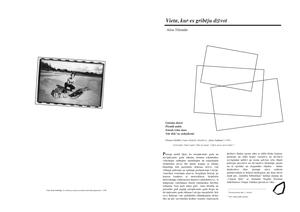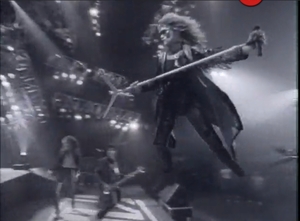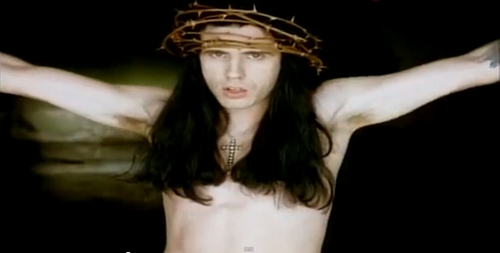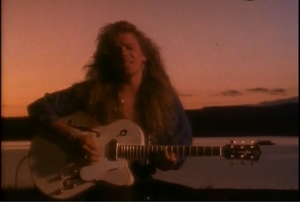“'The Place I Wanted to Live In’: Western Rock Videos of the 1980s and 1990s in the Soviet Union,” in Maija Rudovska, ed., Inside and Out (Riga: kim? Contemporary Art Center, 2012), 2-9. ISBN 9789934820069.
Rock music is only possible when you are young. Rock stars on stage would jump and sweat through some kind of Dyonisian rituals, accompanied by the energetic, emotionally uplifting sound of their music. Live concert recordings made up a large part of the 1980s music videos, and the ecstatic atmosphere in these videos was often underlined by shots of excited fan crowds. For example, such videos as “You Give Love a Bad Name” (1986) by Bon Jovi, “Final Countdown” (1986) by Europe, “Love Removal Machine”, “Lil’Devil” (1987) and “Wild Hearted Son” (1991) by The Cult, “Everybody Loves Eileen” and “I’ll Never Let You Go” (1990) by Steelheart, and “Monkey Business” (1991) by Skid Row manifest this tendency.
The fact that these rock stars – men - are using make-up and have long, “feminine” hairdos, can suggest a certain sexual ambiguity or at least uncertainty. Or perhaps the tights, eyeliners, and perm rather functioned as attributes of emphasized masculinity? Manifestations of androgyny or uncertain gender identity in the "cock rock" world can be interpreted as a proletarian offspring of the aristocratic dandyism of the 18th and 19th centuries. For example, notice how the aesthetic refinement of George Byron, Oscar Wilde, and Aubrey Beardsley was recaptured by David Bowie in the 1970s. In the 1980s this sexual undecidability was reduced to the standard combo of long hair and skinny leather pants. If rock music of this era had any true macho hero at all, it could only have been the demonic Glenn Danzig, who at the time had the most athletic torso, the most menacing look, and who could easily tame an alligator with his bare hands (see the video for “I’m the One,” 1990).



